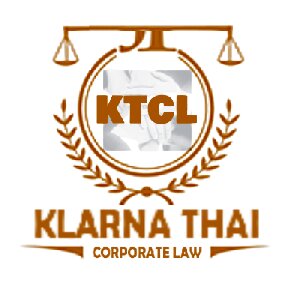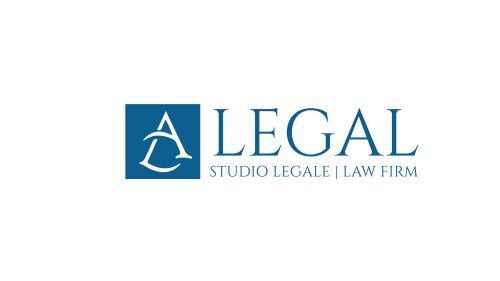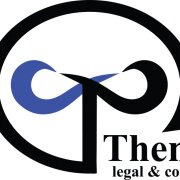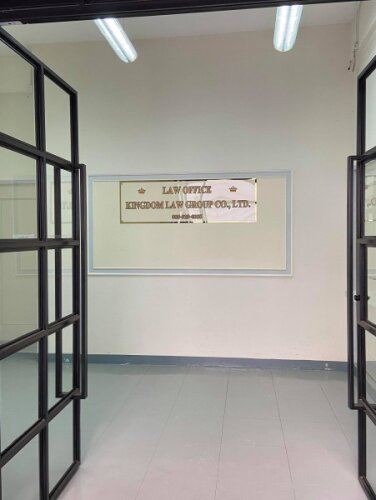Best Tax Increment Financing Lawyers in Watthana
Share your needs with us, get contacted by law firms.
Free. Takes 2 min.
List of the best lawyers in Watthana, Thailand
Thailand Tax Increment Financing Legal Articles
Browse our 1 legal article about Tax Increment Financing in Thailand written by expert lawyers.
- Thai Legal Framework for Cryptocurrencies
- Technology, investment, and money have all been fundamentally altered by cryptocurrencies. Countries all throughout the globe struggle to design legal regimes that safeguard consumers while fostering innovation as these digital assets develop. Thailand distinguishes itself in this sense as it has one of the most thorough regulatory frameworks regarding cryptocurrencies... Read more →
About Tax Increment Financing Law in Watthana, Thailand
Tax Increment Financing, often abbreviated as TIF, is a financial tool used by local governments around the world to stimulate economic development within specific districts or neighborhoods. In Watthana, a vibrant district within Bangkok, TIF is used to encourage redevelopment and attract investment to underdeveloped areas. The core principle involves capturing the future increases in property tax revenue generated by new development projects and allocating those funds to help finance the development costs. This allows for improvement of public infrastructure, support of real estate projects, and revitalization of communities without imposing additional tax burdens on existing residents.
Why You May Need a Lawyer
Engaging with Tax Increment Financing projects in Watthana can be legally and financially complex. Individuals and businesses may require a lawyer in the following situations:
- Navigating the application process for TIF funding or incentives
- Negotiating development agreements with the local government
- Clarifying eligibility and compliance with regulatory requirements
- Identifying the risks and legal obligations associated with TIF
- Addressing community concerns or disputes regarding proposed developments
- Advising on tax implications for property owners and investors
- Ensuring transparency and lawful allocation of increment funds
- Representing interests in case of legal disputes or challenges
Local Laws Overview
Tax Increment Financing in Watthana, and Thailand as a whole, is governed by a mix of national economic development policies and specific local ordinances. The Thai government supports public-private partnerships to encourage urban renewal, while Bangkok Metropolitan Administration (BMA) oversees local regulations. Key aspects include:
- Designation of specific TIF districts by local authorities
- Requirement for clearly defined project plans and anticipated financial impacts
- Use of incremental tax revenue to fund eligible project expenses, typically focused on public infrastructure and economic development
- Transparency requirements for public disclosure and stakeholder engagement
- Oversight by various governmental agencies to ensure legal and ethical compliance
Frequently Asked Questions
What is Tax Increment Financing and how does it work in Watthana?
Tax Increment Financing is a method for funding public improvements by capturing the increase in property tax revenues resulting from new development. In Watthana, local authorities establish TIF zones where future tax gains are set aside for project funding.
Who is eligible to apply for TIF in Watthana?
Eligibility typically includes real estate developers, business owners, or consortiums proposing qualified projects that meet local redevelopment goals and public benefit criteria.
What types of projects are commonly funded through TIF?
Projects include infrastructure upgrades, public facilities, mixed-use developments, and revitalization of underutilized or blighted properties.
What legal regulations govern TIF programs in Watthana?
TIF programs are regulated by a combination of urban development laws, property tax codes, and local Bangkok ordinances, with oversight by the BMA and relevant national agencies.
How are property taxes affected for residents in TIF districts?
Existing property tax rates are not increased due to TIF. Instead, only the additional taxes generated from increased property values after development are used to fund TIF projects.
Are there risks involved when participating in TIF-funded developments?
Yes, risks can include changes in property values, potential project delays, evolving legal requirements, and challenges related to community consent or environmental impact.
How can a lawyer help with TIF in Watthana?
A lawyer can assist with due diligence, contract negotiation, regulatory compliance, conflict resolution, and representation in legal proceedings related to TIF projects.
Is public input required in TIF project approval?
Public input is generally encouraged and sometimes legally required during the planning and approval phases. Community meetings and public disclosure of project details are common.
Can TIF be used for residential development?
TIF is often used for mixed-use projects that may include residential components, but each project must align with local zoning laws and public development objectives.
How can disputes about TIF projects be resolved?
Disputes can be resolved through negotiation, mediation, or, if necessary, legal action. A local lawyer specializing in development law can advise on appropriate steps.
Additional Resources
For additional information and support regarding Tax Increment Financing in Watthana, consider consulting the following:
- Bangkok Metropolitan Administration (BMA) - Office of City Planning
- The Thai Chamber of Commerce
- Legal Aid Center for Economic and Urban Development
- Department of Lands (Thailand)
- Watthana District Office - Urban Planning Division
Next Steps
If you are considering involvement in a TIF project or have legal questions about existing or proposed developments in Watthana, it is recommended to:
- Document your goals and preliminary project details
- Consult with a lawyer who is experienced in urban development and property law in Thailand
- Gather necessary permits, contracts, and supporting documentation
- Engage with local governmental offices for current regulations and procedures
- Participate in community forums or public consultations related to proposed TIF districts
- Stay updated with changes in national and local laws regarding economic development
Lawzana helps you find the best lawyers and law firms in Watthana through a curated and pre-screened list of qualified legal professionals. Our platform offers rankings and detailed profiles of attorneys and law firms, allowing you to compare based on practice areas, including Tax Increment Financing, experience, and client feedback.
Each profile includes a description of the firm's areas of practice, client reviews, team members and partners, year of establishment, spoken languages, office locations, contact information, social media presence, and any published articles or resources. Most firms on our platform speak English and are experienced in both local and international legal matters.
Get a quote from top-rated law firms in Watthana, Thailand — quickly, securely, and without unnecessary hassle.
Disclaimer:
The information provided on this page is for general informational purposes only and does not constitute legal advice. While we strive to ensure the accuracy and relevance of the content, legal information may change over time, and interpretations of the law can vary. You should always consult with a qualified legal professional for advice specific to your situation.
We disclaim all liability for actions taken or not taken based on the content of this page. If you believe any information is incorrect or outdated, please contact us, and we will review and update it where appropriate.















